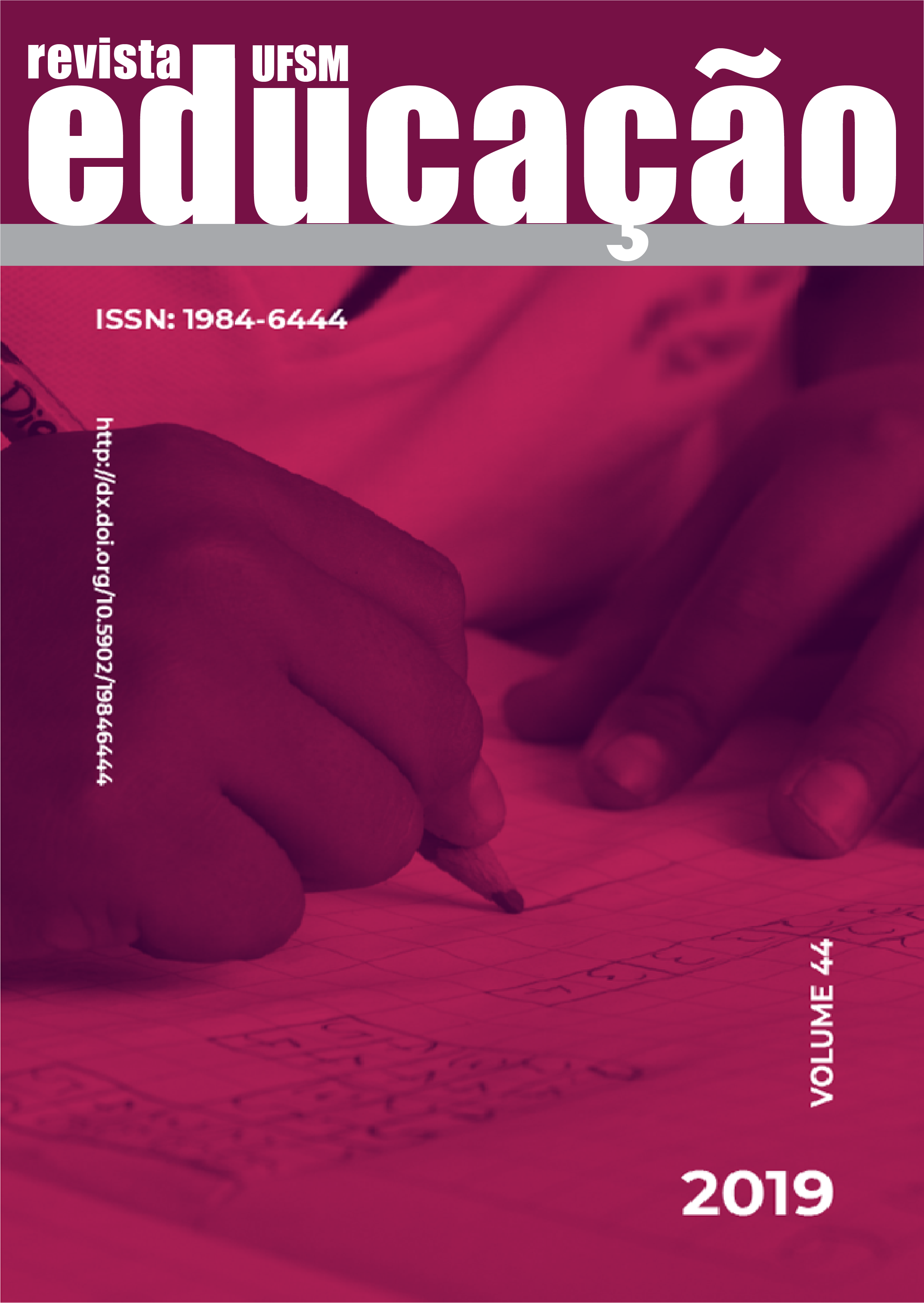Learning and teaching from Martin Heidegger’s What’s a Thing?
DOI:
https://doi.org/10.5902/1984644437922Keywords:
Tá Mathemata, Learning, Teaching.Abstract
The present work, derived from a bibliographical research through the method of content analysis, aims to think about learning and teaching from the mathematical principle, tá mathemata, taken up by Heidegger. As the basic text, our proposal takes up Heidegger's work, What is a Thing? (1935-1936). The work is organized in two parts: a preparatory part and a main part divided into two chapters. Our text will take up the preparatory part in which, Heidegger, through the question, “What is a thing?,” aims to understand whether there is a knowledge that determines the foundations and limits of science or, rather, if it is Science that is the standard of measurement of knowledge. It will also take up the first chapter of the main part, in order to approach the discussion about the mathematical principle that etymologically derives from the Greek ta mathemata, what can be learned – manthanoein – and at the same time, consequently what can be taught – mathesis – which means lesson and implies a double meaning: receiving a lesson or learning on the one hand and what is taught on the other. Mathematics is understood as a prerequisite for learning and teaching about anything. Thus, our proposal is to consider in the Greek principle tá mathemata, as taken over by Heidegger, teaching by underscoring its requirement to awaken in the student the sense for an authentic learning instead of a simple transference of a certain subject.References
HEIDEGGER, Martin. Que é uma coisa? Doutrina de Kant dos Princípios Transcendentais. Trad. Carlos Morujão. Lisboa: Edições 70, 1992.
HEIDEGGER, Martin. Sobre o humanismo. Trad. de Emmanuel Carneiro Leão. Rio de Janeiro: Edições Tempo Brasileiro LTDA, 1995.
HEIDEGGER, Martin. Introdução à filosofia. Trad. de Marco Antônio Casanova. São Paulo: Martins Fontes, 2008a.
HEIDEGGER, Martin. A teoria platônica da verdade. In: HEIDEGGER, Martin. Marcas do caminho. Trad. de Enio Paulo Giachini e Ernildo Stein. Petrópolis: Vozes, 2008b. (p. 215/250). (Coleção Textos Filosóficos).
HEIDEGGER, Martin. O que quer dizer Pensar? In: HEIDEGGER, Martin. Ensaios e conferências. Tradução de Emanuel Carneiro Leão, Gilvan Fogel, Maria Sá Cavalcante Schuback. 2ª ed. Petrópolis: Vozes, 2001. (p. 111/124).
HEIDEGGER, Martin. Ser e tempo. Trad. Fausto Castilho. Petrópolis: Vozes, 2011.
KAHLMEYER-MERTENS, Roberto S. Heidegger & a Educação. Belo Horizonte: Autêntica Editora, 2008.
KOHANSKI, Alexander S. The Greek Mode of Thought in Western Philosophy. London: Associated University Press, 1984.
NUNES, Benedito. Passagem para o poético (Filosofia e poesia em Heidegger). São Paulo: Editora Ática S.A. 2.a Edição, 1992.
QUAY, John. Education, Experience and Existence: Engaging Dewey, Pierce and Heidegger. New York: Routledge, 2015.
REZENDE, Antonio Muniz de. Concepção Fenomenológica da Educação. São Paulo: Cortez/Autores Associados, 1990.
RÜDIGER, Francisco. Martin Heidegger e a questão da técnica: Prospectos acerca do futuro do homem. Porto Alegre: Sulina, 2006.
VEIGA, Itamar Soares. O confronto de Heidegger com o “motivo matemático” da metafísica moderna. Petrópolis: Synesis: Revista do Centro de Teologia e Humanidades. Vol. 3, Nº 2 (2011) p. 36-52,. ISSN 1984-6754. Disponível em: https://digitalis.uc.pt/en/node/101371. Acesso em: 5 fev. 2019.
Published
How to Cite
Issue
Section
License
Declaration of originality
We declare that all articles present in the journal Educação (UFSM) are originals and were not submitted for publishing on any other publication, as a whole or a fraction. We also declare that, after being published by Educação (UFSM), a paper will not be submitted to another journal within two years. After this time, our journal transfers the publishing rights to the authors, with a permit granted by the Editorial Council.
We also acknowledge that the originals’ submission to Educação (UFSM) implies on a transference of copyright for physical and digital publishing to the journal. In case of noncompliance, the violator will receive sanctions and penalties predicted by the Brazilian Copyright Protection Law (n. 9610, dated 19/02/98).
Attribution 4.0 International (CC BY 4.0)
This license lets others remix, transform, and build upon the material for any purpose, even commercially, and copy and redistribute the material in any medium or format.

This work is licensed under a Creative Commons Attribution 4.0 International (CC BY 4.0)






